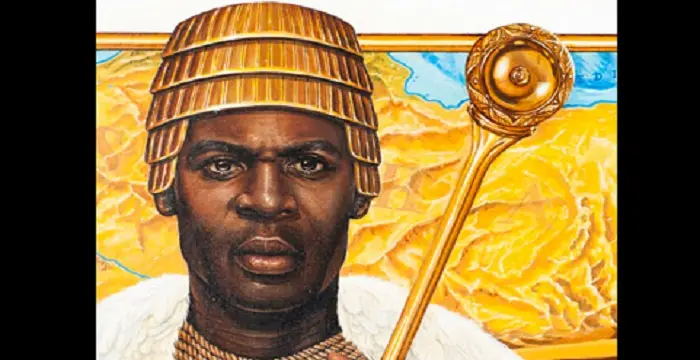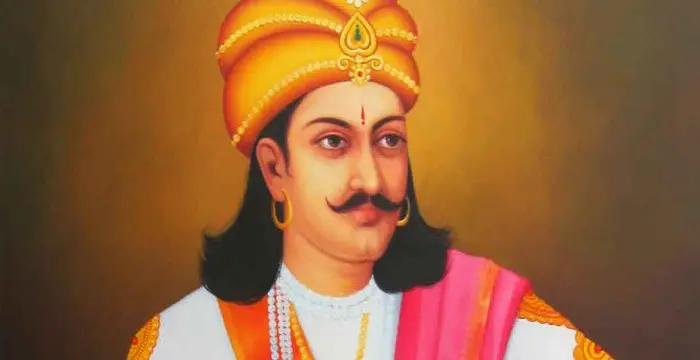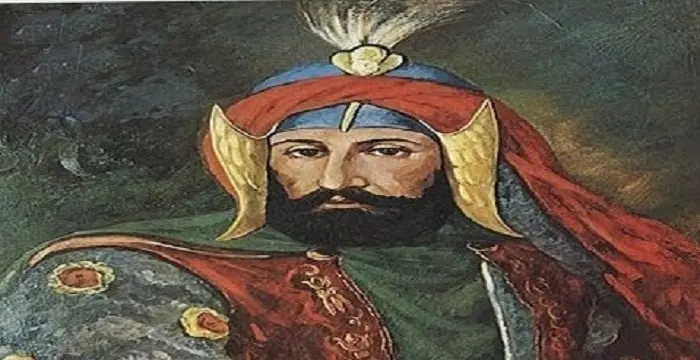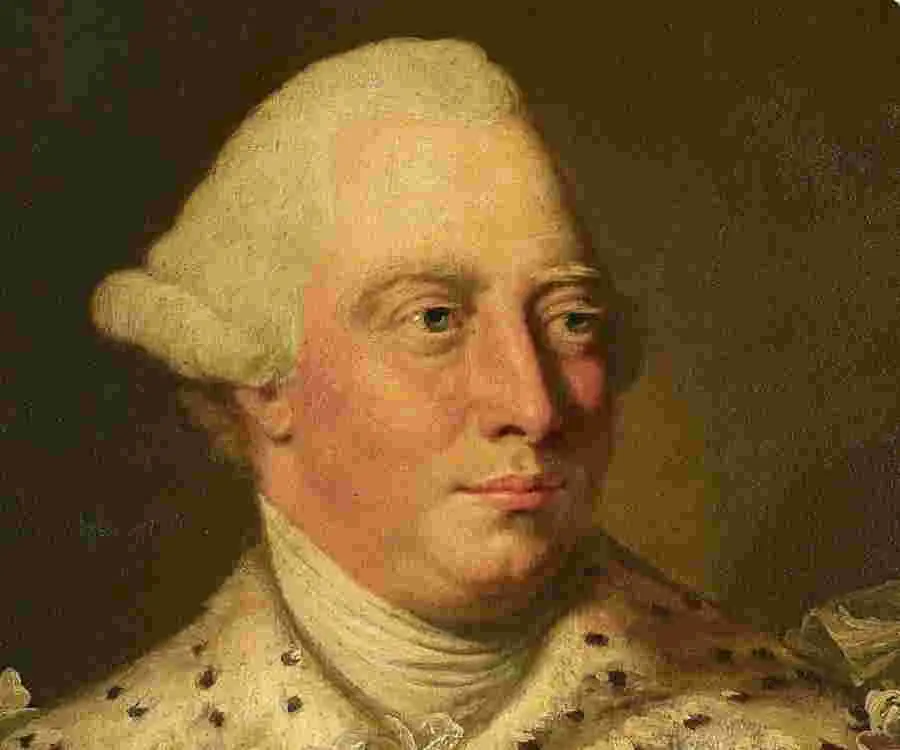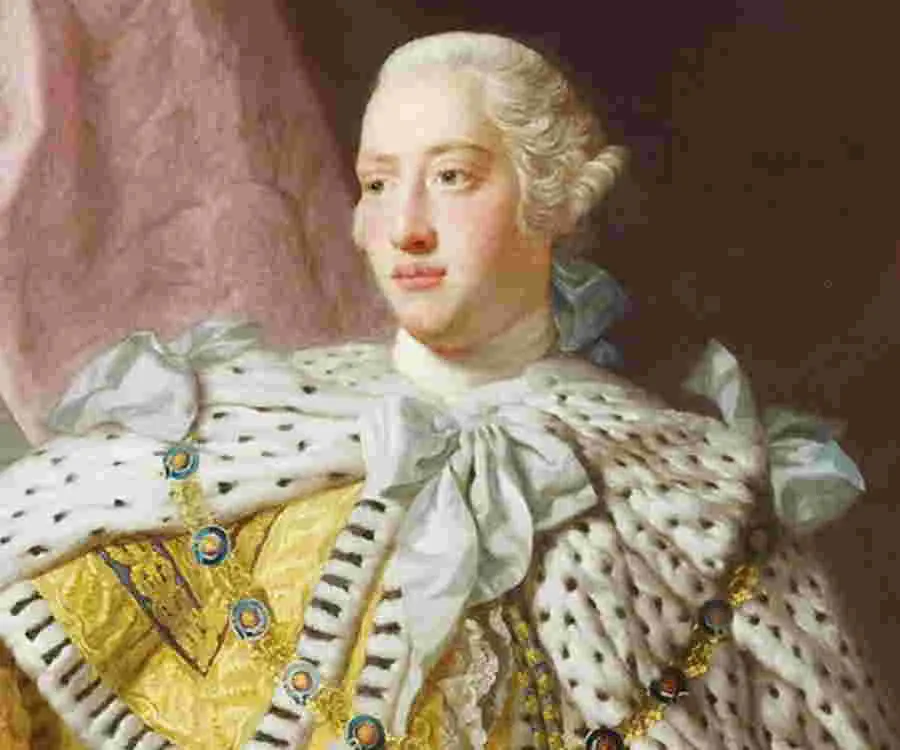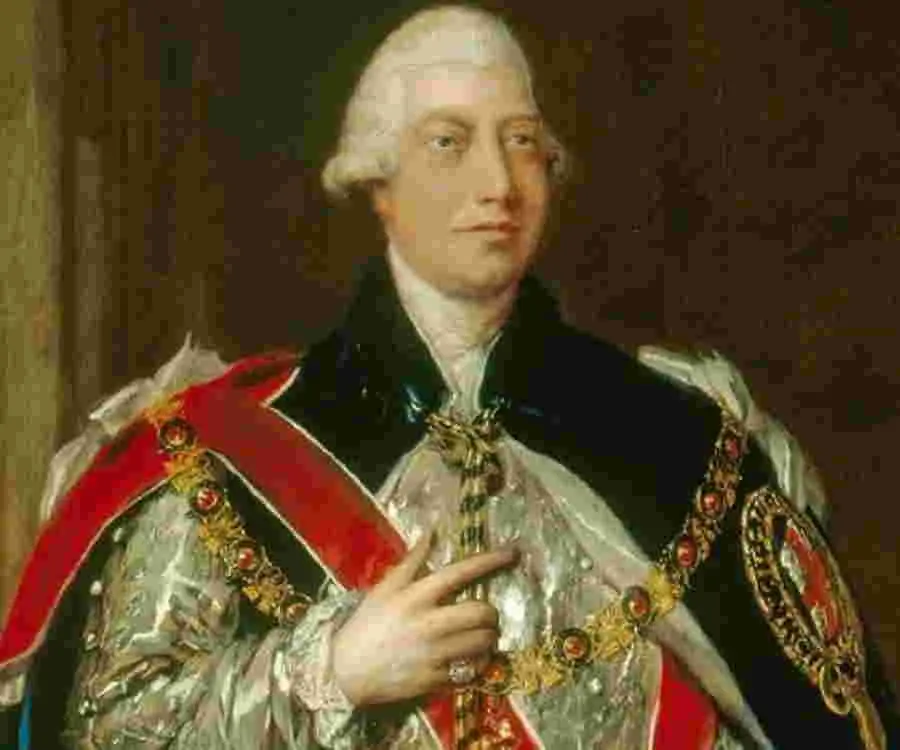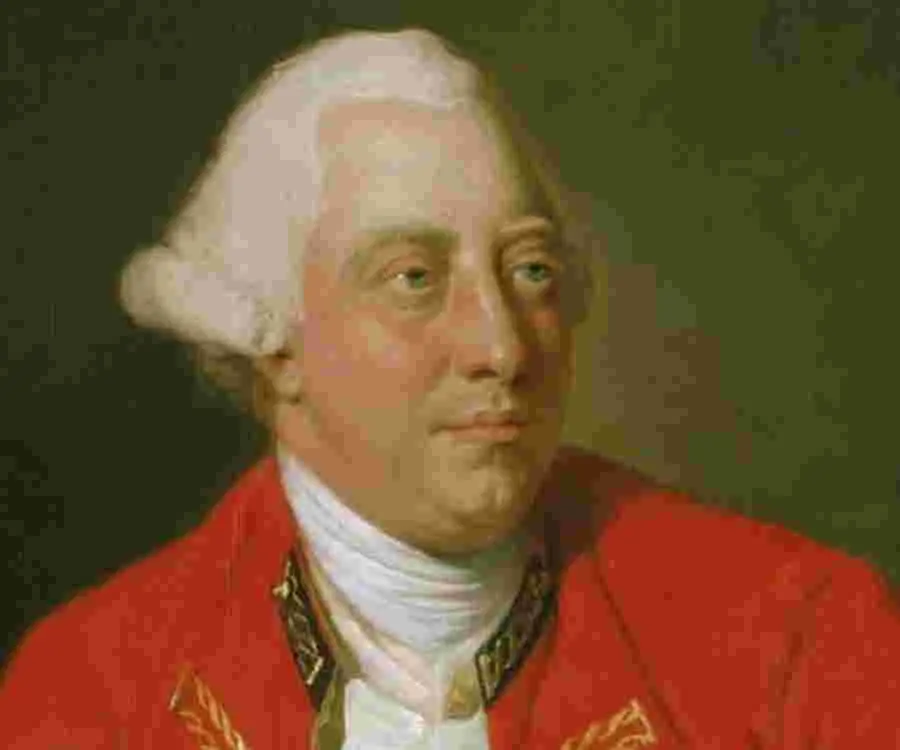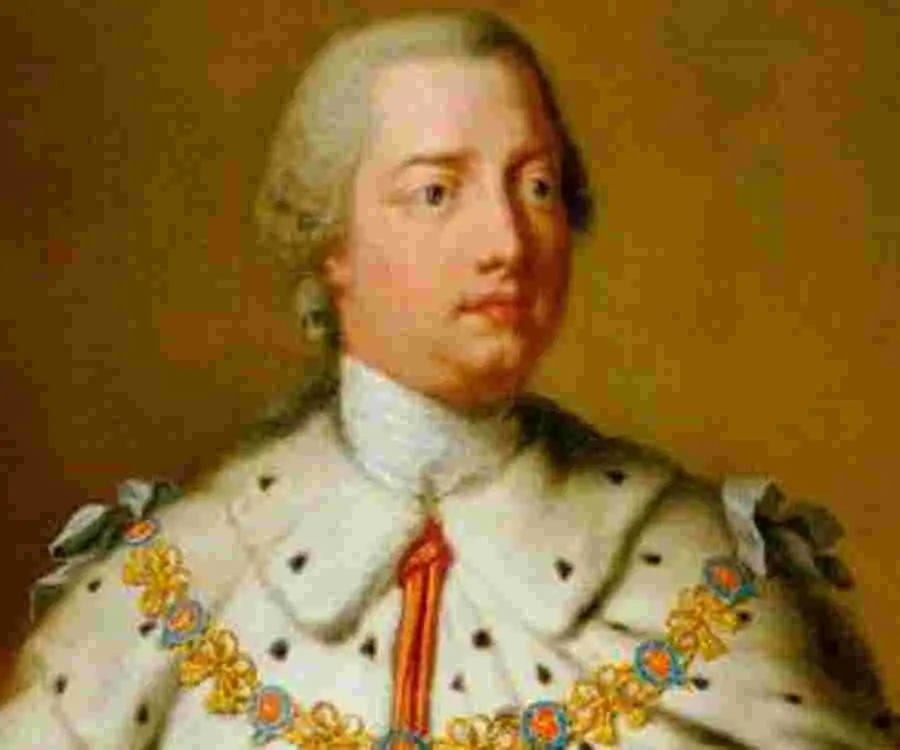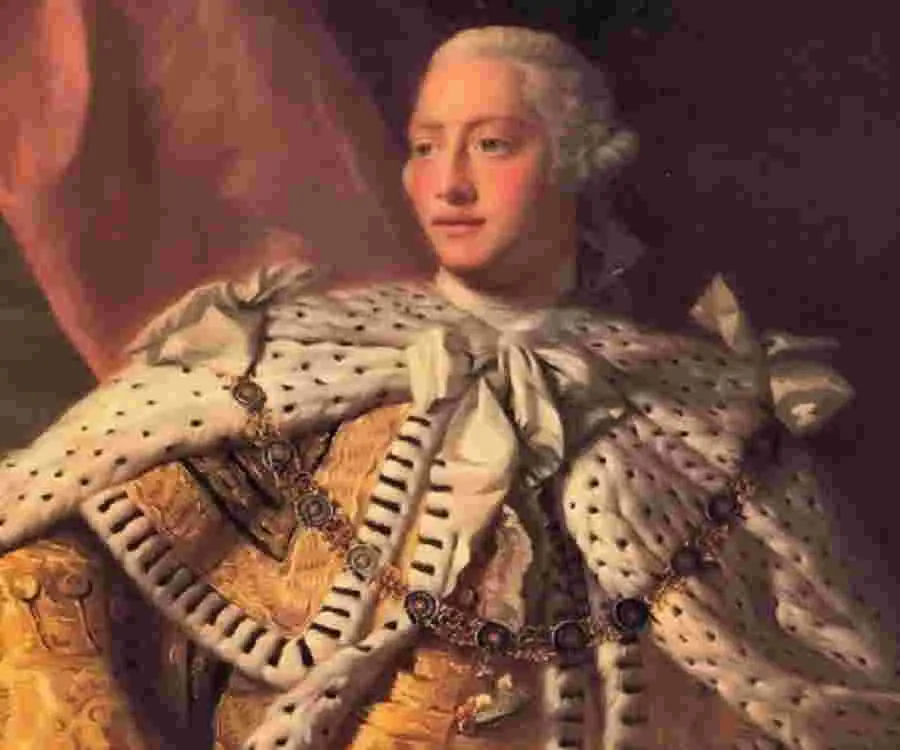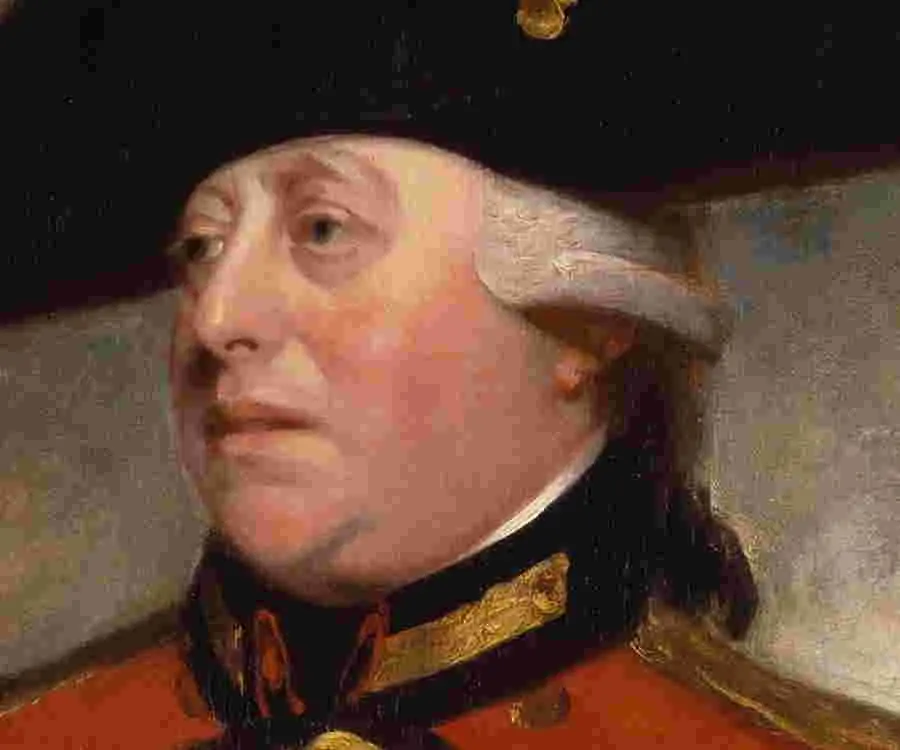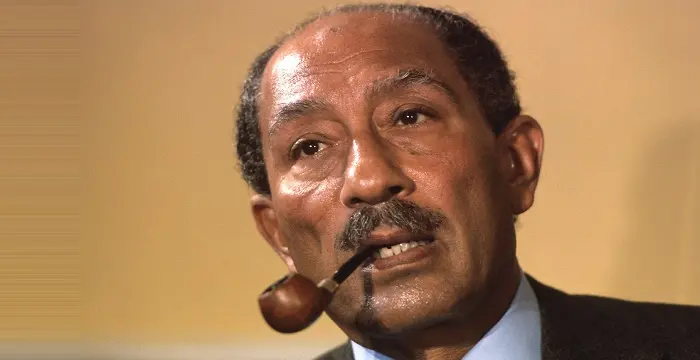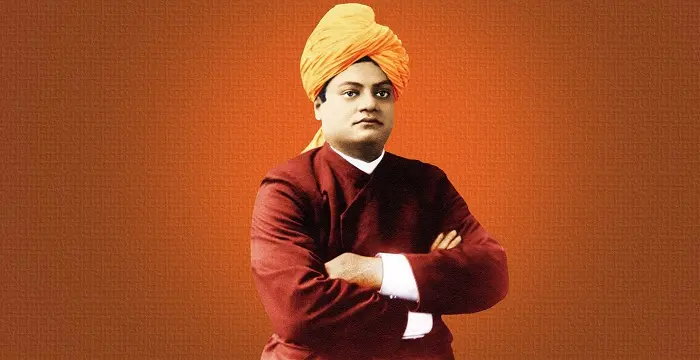
George III of the United Kingdom - Emperors, Family and Childhood
George III of the United Kingdom's Personal Details
George William Frederick is famous as King George III, and is one of the most influential royal figures in British history
| Information | Detail |
|---|---|
| Birthday | June 4, 1738 |
| Died on | January 29, 1820 |
| Nationality | British |
| Famous | Historical Personalities, Emperors & Kings, Leaders, Emperors, Kings |
| Spouses | Charlotte of Mecklenburg-Strelitz |
| Siblings | Caroline Matilda of Great Britain, Duke of Cumberland and Strathearn, Duke of Gloucester and Edinburgh, Duke of York and Albany, Prince Edward, Prince Frederick of Great Britain, Prince Henry, Prince William Henry, Princess Augusta of Great Britain, Princess Louisa of Great Britain |
| Childrens | William IV of the United Kingdom |
| Founder / Co-Founder |
|
| Birth Place | Norfolk House |
| Religion | Church of England, Protestantism |
| Gender | Male |
| Father | Frederick, Prince of Wales |
| Mother | Princess Augusta of Saxe-Gotha |
| Sun Sign | Gemini |
| Born in | Norfolk House |
| Famous as | King |
| Died at Age | 81 |
// Famous Kings
Sundiata Keita
Sundiata Keita was the founder of the Mali Empire in West Africa. This biography profiles his childhood, early life, struggles, founding of empire, rule, administration, achievements and also gives some fun facts.
Ashoka
Ashoka was the third emperor of the Mauryan Dynasty and ruled almost the entire Indian subcontinent. This biography profiles his childhood, life, reign, achievements and timeline
Murad IV
Murad IV was one of the mighty Sultans in the history of the Ottoman Empire. This biography profiles his childhood, family, accession, rule, administration and timeline.
George III of the United Kingdom's photo
Who is George III of the United Kingdom?
George William Frederick, more commonly known as George III, was one of the most famous Kings of the Great Britain. He was known during and after his reign for his benevolent, compassionate, and docile nature. He was more learned than his predecessors, and was a patron of advancements in science, agriculture and technology. He had a penchant for collecting objects pertaining to science and mathematics, which are now displayed at London's 'Science Museum'. He earned the nickname "Farmer George", initially because of the attention he gave to ordinary matters more than concentrating on political affairs. The name however stuck with him even later, when people realized the value of his humility and simplicity, as compared to his pompous son who succeeded him. Along with Prime Minister, William Pitt the Younger, he gained popularity amongst his subjects, which remained so till his death. As a King, he avoided speaking ill to anyone, and is believed to have taken decisions, often considered wrong, to defend his chosen Parliament, rather than establish his own control. Despite mixed opinions about this King, it is a fact that he is still revered by many, all across the world. Read on to explore more about his life and reign
// Famous Emperors
Sundiata Keita
Sundiata Keita was the founder of the Mali Empire in West Africa. This biography profiles his childhood, early life, struggles, founding of empire, rule, administration, achievements and also gives some fun facts.
Ashoka
Ashoka was the third emperor of the Mauryan Dynasty and ruled almost the entire Indian subcontinent. This biography profiles his childhood, life, reign, achievements and timeline
Murad IV
Murad IV was one of the mighty Sultans in the history of the Ottoman Empire. This biography profiles his childhood, family, accession, rule, administration and timeline.
Childhood & Early Life
George William Frederick, popularly known as George III, was born to Frederick, Prince of Wales, and Princess Augusta of Saxe-Gotha, in Norfolk House, on June 4, 1738. Born premature, his grandfather was the King of England, George II, and his brother was Prince Edward.
Soon, Prince Frederick and his family settled down in Leicester Square, where the two young boys were home-schooled.
Apart from being fluent in German and English, he also knew a lot about the political affairs of the nation. He was also the first person from the Royal family to have learnt all the different branches of science, including chemistry, astronomy, physics, and mathematics. He was also taught the social sciences along with agriculture, commerce, and law.
Other than extensive studies, he was also trained in extra-curricular activities like horse riding, dancing, acting, and fencing.
In 1751, Prince Frederick died, and the young man inherited the title of Duke of Edinburgh. It was then that King George II made the new Duke, the Prince of Wales.
Accession & Reign
In the year 1760, George became the King of England when his grandfather suddenly passed away. The next year, on September 22, George III was coroneted as the royal Head of State.
In 1763, when the King signed the 'Treaty of Paris' with France and Spain, the Prime Minister Lord Bute stepped down from office, and George Grenville of the Whig political party took over.
The same year, King George III issued the 'Royal Proclamation' which stopped further conquest of American colonies towards the west, instead focussing on north and south. This decision was not supported by all, mainly the colonists of the northern and southern parts of America.
In 1765, Prime Minister Grenville passed the 'Stamp Act', earning revenue from all documents that were printed in British-controlled areas of North America. This led to widespread dissent, especially amongst publishers of newspapers, and they protested against this step taken by the Prime Minister.
An attempt was made by the King of England, to thwart Grenville's activities, and the former requested British statesman, William Pitt the Elder to become the Prime Minister. Pitt declined the offer, and Charles Watson, also known as Lord Rockingham, replaced Grenville.
Lord Rockingham was well-advised by George III and William Pitt to remove the 'Stamp Act', a task which he successfully carried out. However because of his incapability to govern the country, William Pitt was named the Prime Minister in 1766. Following this the King’s popularity with the American citizens increased.
In 1767, the Duke of Grafton, Augustus FitzRoy, had to replace Pitt, when the latter fell sick, but his duties and position was officially confirmed only the next year.
The Duke of Grafton was later succeeded by Lord Frederick North, in 1770. The same year, the King's brother, Prince Henry, got wedded to a widow of lower class, Anne Horton.
This move was despised by George III, who immediately tried to bring into effect a law that would prohibit members of the royal family from marrying without asking the King. Though the law faced initial opposition, even from the King's subordinates, it was finally introduced in 1772 as the 'Royal Marriages Act'.
Lord North brought about several changes, mainly to appease those belonging to the American colonies. He did away with all taxes, except the duty on tea, which according to the King was necessary to levy.
In 1773, an unfortunate incident took place, where a lot of tea was thrown into the sea by the American colonists, and Lord North, in consultation with William Pitt, was forced to take harsh steps. He closed down the Port of Boston, and made it mandatory that King select the members of the Upper House of the Legislature.
This led to protest amongst the colonists, who had made each province a self-governed one, disregarding the power of the King. The protest led to the 'Battle of Concord' and the 'Battle of Lexington' in 1775.
By July, 1776, independence was declared in America, accusing George III of having plundered the colonies, and caused nothing but mayhem. At the 'Battle of Saratoga', fought the following year, British official, John Burgoyne, was defeated by the colonists.
The 'American War of Independence' continued, and the British government had to incur heavy expenses to keep fighting. While, the British were victorious at the 'Battle of Guilford Court House' and the 'Battle of Camden', they lost to the Americans in the 'Siege of Charleston' and the 'Siege of Yorktown'.
In 1781, Lord North stepped down as the Prime Minister, and the King had no other choice but to concede defeat and grant America its freedom. The next two years, the 'Treaties of Paris' were signed, and this event marked the close of the 'American War of Independence'.
Initially, Lord Rockingham was appointed the Prime Minister for his second term after the resignation given in by Lord North. However, following his death within a few months, it was Lord Shelburne who took over.
Within a year's time, Lord Shelburne was ousted and William Cavendish, the Duke of Portland replaced the former as the Prime Minister. He was assisted by Charles James Fox as the Foreign Secretary, and Lord North as the Home Minister.
Soon, in 1783, William Pitt the Younger replaced the Duke of Portland as Prime Minister, owing to several measures taken by the King to remove Fox from office. Pitt became the youngest British statesman ever to become the Prime Minister of Great Britain.
After the appointment of Pitt, several positive changes were introduced in the country, increasing the popularity of the new Prime Minister and the King. George III was admired because of his fidelity to his wife, and his religious nature.
Towards the end of the 1780s, George III became mentally ill, and was soon deemed incapable of ruling the nation. There were talks of the Prince of Wales, becoming the regent, ruling the country in his father's absence, but before the decision could be taken by the 'House of Commons', the King got better.
The King continued to be admired by his subjects, especially after he was lenient towards two people who had tried attacking him. Soon there were several other changes in the Prime Minister's office, but none of the decisions that George III took, had any major significance.
By 1810, the King had become old, and suffered from various ailments, including mental illness, and within the following year, he was no longer capable of performing his royal duties.
In the King's place, it was his son, Prince of Wales, George IV, who acted as regent, and under his leadership, the battles against Napoleon were won.
Major Works
Under this famous King’s rule, there was a drastic growth in agricultural production in the nation. He also ensured that constant development took place in industrial and scientific areas. Rural population flourished in Britain, and these masses were eventually employed during the Industrial Revolution.
Personal Life & Legacy
On 8 September 1761, King George III got married to Princess Charlotte of Mecklenburg-Strelitz, at the Chapel Royal, in St James's Palace.
The royal couple had fifteen children, of whom, Princess Amelia and Prince Frederick were his favourite children. The only two sons who ruled England as Kings, were, George IV and William IV.
Trivia
This British emperor was the only one to have never had a concubine, and was known to have been loyal to his wife throughout his life.
// Famous Historical Personalities
Sundiata Keita
Sundiata Keita was the founder of the Mali Empire in West Africa. This biography profiles his childhood, early life, struggles, founding of empire, rule, administration, achievements and also gives some fun facts.
Ashoka
Ashoka was the third emperor of the Mauryan Dynasty and ruled almost the entire Indian subcontinent. This biography profiles his childhood, life, reign, achievements and timeline
Jetsun Pema
Jetsun Pema is the Queen consort of Bhutan. Check out this biography to know about her childhood, family life, achievements and fun facts about her life.
George III of the United Kingdom biography timelines
- // 4th Jun 1738George William Frederick, popularly known as George III, was born to Frederick, Prince of Wales, and Princess Augusta of Saxe-Gotha, in Norfolk House, on June 4, 1738. Born premature, his grandfather was the King of England, George II, and his brother was Prince Edward.
- // 1751In 1751, Prince Frederick died, and the young man inherited the title of Duke of Edinburgh. It was then that King George II made the new Duke, the Prince of Wales.
- // 1760In the year 1760, George became the King of England when his grandfather suddenly passed away. The next year, on September 22, George III was coroneted as the royal Head of State.
- // 8th Sep 1761On 8 September 1761, King George III got married to Princess Charlotte of Mecklenburg-Strelitz, at the Chapel Royal, in St James's Palace.
- // 1763In 1763, when the King signed the 'Treaty of Paris' with France and Spain, the Prime Minister Lord Bute stepped down from office, and George Grenville of the Whig political party took over.
- // 1765In 1765, Prime Minister Grenville passed the 'Stamp Act', earning revenue from all documents that were printed in British-controlled areas of North America. This led to widespread dissent, especially amongst publishers of newspapers, and they protested against this step taken by the Prime Minister.
- // 1766Lord Rockingham was well-advised by George III and William Pitt to remove the 'Stamp Act', a task which he successfully carried out. However because of his incapability to govern the country, William Pitt was named the Prime Minister in 1766. Following this the King’s popularity with the American citizens increased.
- // 1767In 1767, the Duke of Grafton, Augustus FitzRoy, had to replace Pitt, when the latter fell sick, but his duties and position was officially confirmed only the next year.
- // 1770The Duke of Grafton was later succeeded by Lord Frederick North, in 1770. The same year, the King's brother, Prince Henry, got wedded to a widow of lower class, Anne Horton.
- // 1772This move was despised by George III, who immediately tried to bring into effect a law that would prohibit members of the royal family from marrying without asking the King. Though the law faced initial opposition, even from the King's subordinates, it was finally introduced in 1772 as the 'Royal Marriages Act'.
- // 1773In 1773, an unfortunate incident took place, where a lot of tea was thrown into the sea by the American colonists, and Lord North, in consultation with William Pitt, was forced to take harsh steps. He closed down the Port of Boston, and made it mandatory that King select the members of the Upper House of the Legislature.
- // 1775This led to protest amongst the colonists, who had made each province a self-governed one, disregarding the power of the King. The protest led to the 'Battle of Concord' and the 'Battle of Lexington' in 1775.
- // 1776By July, 1776, independence was declared in America, accusing George III of having plundered the colonies, and caused nothing but mayhem. At the 'Battle of Saratoga', fought the following year, British official, John Burgoyne, was defeated by the colonists.
- // 1781In 1781, Lord North stepped down as the Prime Minister, and the King had no other choice but to concede defeat and grant America its freedom. The next two years, the 'Treaties of Paris' were signed, and this event marked the close of the 'American War of Independence'.
- // 1783Soon, in 1783, William Pitt the Younger replaced the Duke of Portland as Prime Minister, owing to several measures taken by the King to remove Fox from office. Pitt became the youngest British statesman ever to become the Prime Minister of Great Britain.
- // 1810By 1810, the King had become old, and suffered from various ailments, including mental illness, and within the following year, he was no longer capable of performing his royal duties.
// Famous Leaders
Edi Rama
Edi Rama is the current Prime Minister of Albania. Check out this biography to know about his childhood, life, achievements, works & timeline.
Tecumseh
Tecumseh was a Native American leader of the Shawnee clan. This biography profiles his childhood, life and timeline.
Khalifa bin Zayed Al Nahyan
Sheikh Khalifa bin Zayed Al Nahyan is the current President of the United Arab Emirates (UAE). Check out this biography to know about his birthday, childhood, family life, achievements and fun facts about him.
Anwar Sadat
Anwar Sadat was the third President of Egypt and has been awarded the Nobel Prize for his peace initiatives. To know more about his childhood, career, profile and timeline read on the following biography.
Leo Varadkar
Cam Leo Varadkar is the current Taoiseach—the Prime Minister—of the Republic of Ireland. Check out this biography to know about his childhood, family life, achievements and other facts about his life.
Swami Vivekananda
Swami Vivekananda was the chief disciple of Sri Ramakrishna, and was responsible for awakening India spiritually. Check this biography to know in detail about his life, profile and timeline.
George III of the United Kingdom's FAQ
What is George III of the United Kingdom birthday?
George III of the United Kingdom was born at 1738-06-04
When was George III of the United Kingdom died?
George III of the United Kingdom was died at 1820-01-29
Where was George III of the United Kingdom died?
George III of the United Kingdom was died in Windsor
Which age was George III of the United Kingdom died?
George III of the United Kingdom was died at age 81
Where is George III of the United Kingdom's birth place?
George III of the United Kingdom was born in Norfolk House
What is George III of the United Kingdom nationalities?
George III of the United Kingdom's nationalities is British
Who is George III of the United Kingdom spouses?
George III of the United Kingdom's spouses is Charlotte of Mecklenburg-Strelitz
Who is George III of the United Kingdom siblings?
George III of the United Kingdom's siblings is Caroline Matilda of Great Britain, Duke of Cumberland and Strathearn, Duke of Gloucester and Edinburgh, Duke of York and Albany, Prince Edward, Prince Frederick of Great Britain, Prince Henry, Prince William Henry, Princess Augusta of Great Britain, Princess Louisa of Great Britain
Who is George III of the United Kingdom childrens?
George III of the United Kingdom's childrens is William IV of the United Kingdom
Which company or organization was founded by George III of the United Kingdom?
George III of the United Kingdom was the founder/co-founder of Dartmouth College
What is George III of the United Kingdom's religion?
George III of the United Kingdom's religion is Church of England, Protestantism
Who is George III of the United Kingdom's father?
George III of the United Kingdom's father is Frederick, Prince of Wales
Who is George III of the United Kingdom's mother?
George III of the United Kingdom's mother is Princess Augusta of Saxe-Gotha
What is George III of the United Kingdom's sun sign?
George III of the United Kingdom is Gemini
How famous is George III of the United Kingdom?
George III of the United Kingdom is famouse as King
